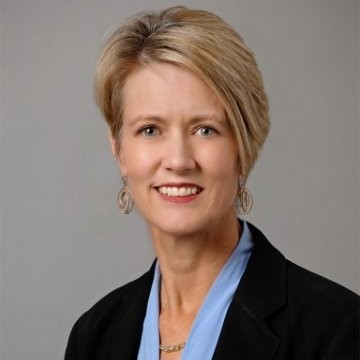The biggest surprise of Missy Matrangola’s tenure as 2023 President of the American Retirement Association’s Board of Directors?
“The variety that comes with it—we talk about legislation, conferences, budget, etc.,” she said. “And also, the fact that being the president of the American Retirement Association is less time-consuming than being the president of ASPPA. All the different organizations have their own boards underneath, so we’re just sitting at a higher level and hearing about what they’re doing. We’re more about ARA’s technology, overall budget, benefits for its employees, and that sort of thing.”
It’s more organizational than it is industry, Matrangola added, but fulfilling, nonetheless, and she encourages pension professionals and actuaries like herself to get involved, make connections, learn, and share.
She even sat on the proverbial “other side of the table,” having been part of the selection committee that chose a new benefits plan for association employees, seeing the process through the eyes of a plan sponsor.
The Vanderbilt law school graduate started her own firm, Atlantic Pension Services, in 1992. She joined ASPPA when it only had one P (American Society of Pension Actuaries) in 1996, coincidentally the same year as ARA CEO Brian Graff.
She started with ASPA for educational purposes because she didn’t have a background in the industry and found a class for the Qualified Pension Administrator (QPA) credential at a local college (she’s since attained her Qualified 401(k) Administrator—QKA—designation as well).
“For me, ARA and the sister organizations are just great,” she explained. “They have such an impact on people who are trying to save and retire. They have recordkeepers, TPAs, actuaries, advisors, and plan sponsors. They just cover so many people at one time. We all know that it’s important to have enough money to retire, but we need people to help get us to and through retirement. As an organization, all of us working together can do so much more than any of us by ourselves.”
She emphasized that it’s not only about the money, using her recently retired husband as an example.
“We work for so long and talk about saving, and then we get to this point and are like, ‘Okay, we never talked about where we go from here?’ We’re lucky. We have advisors, and they’re helping us go forward. But it would be nice, I think if we started a little earlier with talking about how to start the [retirement] transition. We devote so much time to our working life, and people don’t know what to do afterward.”
It can’t all be great; there must be something that she doesn’t like.
“Honestly, I love it all,” she responded diplomatically. “I love the people I’ve met and the things I’ve learned. I love the ARA staff and everyone I’ve met through my various board positions. There are a lot of dedicated people. Volunteering is just the right thing to do, and I get a lot out of it, probably than I put into it.”
- Log in to post comments
